TV Revolutionary Dies At 101
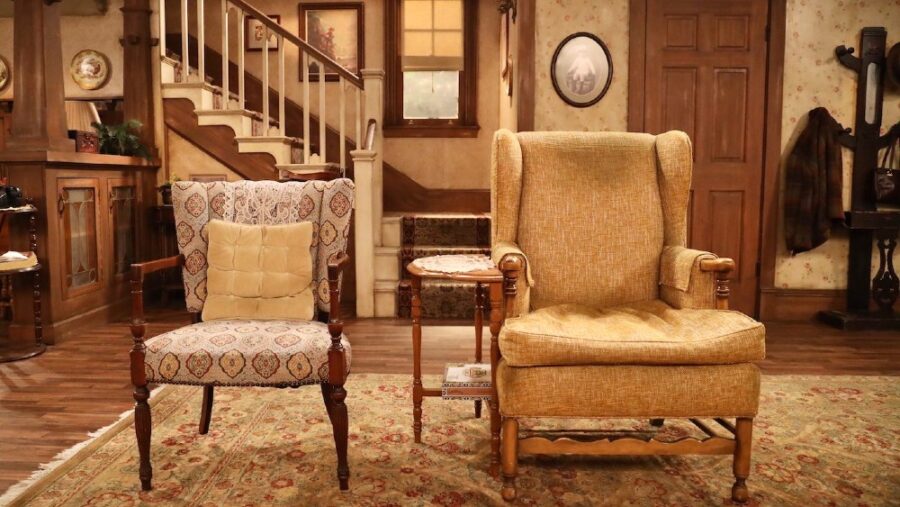
There are television legends, and then there’s Norman Lear. The celebrated creator passed away Tuesday at the age of 101, leaving behind a legacy unmatched by any other Hollywood Icon, dead or living. He died of natural causes in his Los Angeles home.
TV Legend Norman Lear Passes At 101
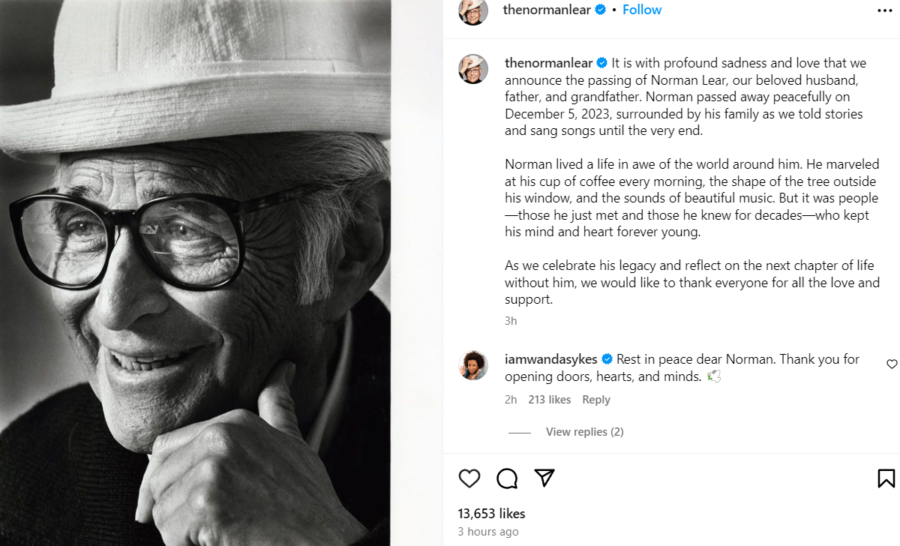
“Thank you for the moving outpouring of love and support in honor of our wonderful husband, father, and grandfather,” Lear’s family said in a statement via Instagram. The statement went on to stress that Norman Lear had a deep love of America and spent his life trying to “preserve its founding ideals of justice and equality for all.”
Norman Lear Made The Princess Bride Possible

The beloved writer/producer was responsible for some of the most thought-provoking and socially relevant television in the ’70s and beyond. Lear was the creative voice behind Sanford and Son, All in the Family, Good Times, Maude, The Jeffersons, and One Day at a Time, and that’s just a partial list! Though mostly known for his Television work, Norman Lear also helped to produce several of your favorite movies, including The Princess Bride and Fried Green Tomatoes.
All In The Family
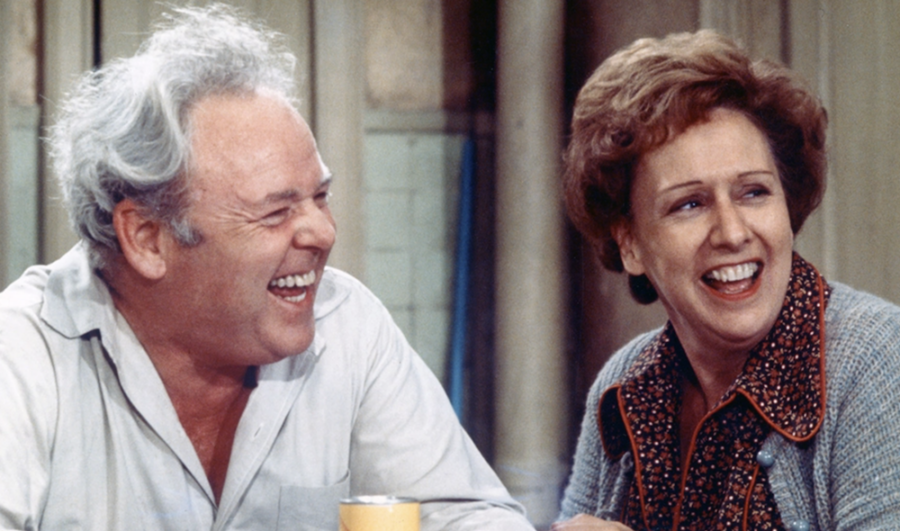
But it was All in the Family that really put Lear on the map. Norman Lear took a typical white, middle-class American family—conservative father, subservient mother, radical daughter, and son-in-law—and used them to broach subjects never before tackled in prime time. All in the Family dealt with racism, homosexuality, white privilege, women’s rights, antisemitism, anti-war protest, and all the other hot-button issues of the time. Lear’s genius was the way the topics were handled. His shows never felt preachy and always gave you a joke at the same time that they were giving you something to think about.
Women’s Rights
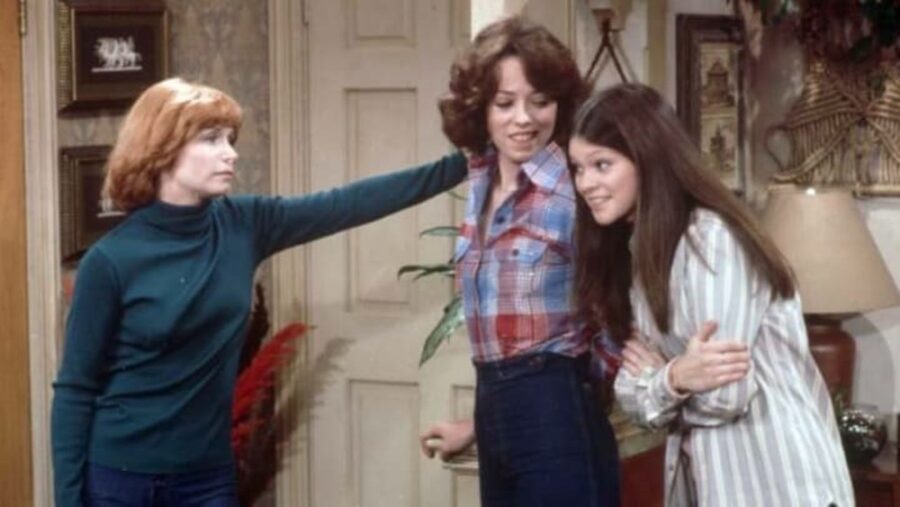
Norman Lear’s shows were particularly revolutionary in the way they depicted women’s issues. Two episodes of All in the Family revolved around the attempted rape of Archie’s wife, Edith, while a landmark episode of Maude saw the show’s namesake getting an abortion, a subject as taboo now as it was then. One Day at a Time even dared to showcase a single mother raising two children alone without the help of the traditional sitcom father.Several of Norman Lear’s productions also featured predominantly African American casts, such as The Jeffersons and Good Times, another anomaly in an age where most black actors were still relegated to servants or goofy sidekicks.
Norman Lear’s Impact On The Industry
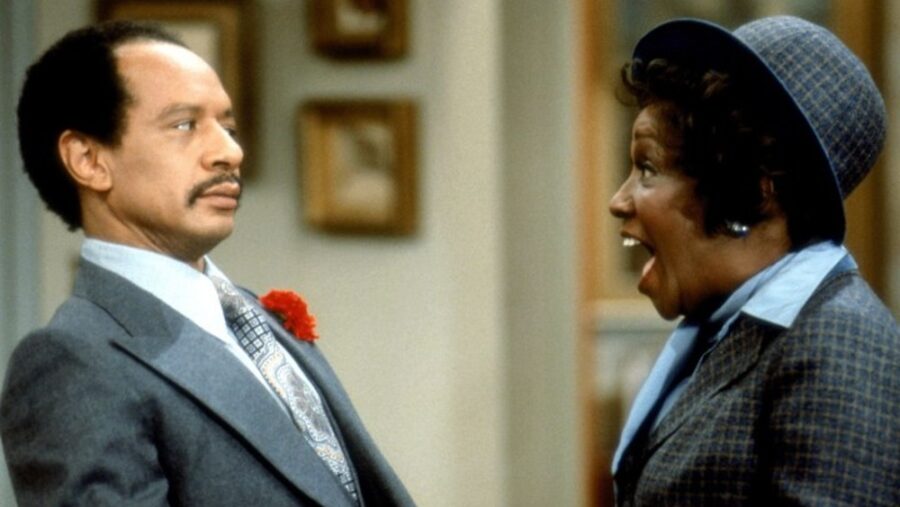
Norman Lear swore by one particular adage when it came to comedies: Keep ’em laughing. Lear told the A.V. Club in 2005 that the main goal of all of his sitcoms was “belly laughs.” The social commentary came once Lear realized of his audience, “The more they cared, the harder they laughed.” Lear didn’t just talk the talk, he also walked the proverbial walk. As one of Hollywood’s most outspoken liberals and progressive philanthropists, Norman Lear created the People for the American Way in 1981, a left-leaning advocacy group created to counteract the conservative Moral Majority organization. Lear’s progressive work on and off screen will be remembered by fans for decades to come.Norman Lear is survived by his third wife, Lyn Davis, his six children, and four grandchildren.












